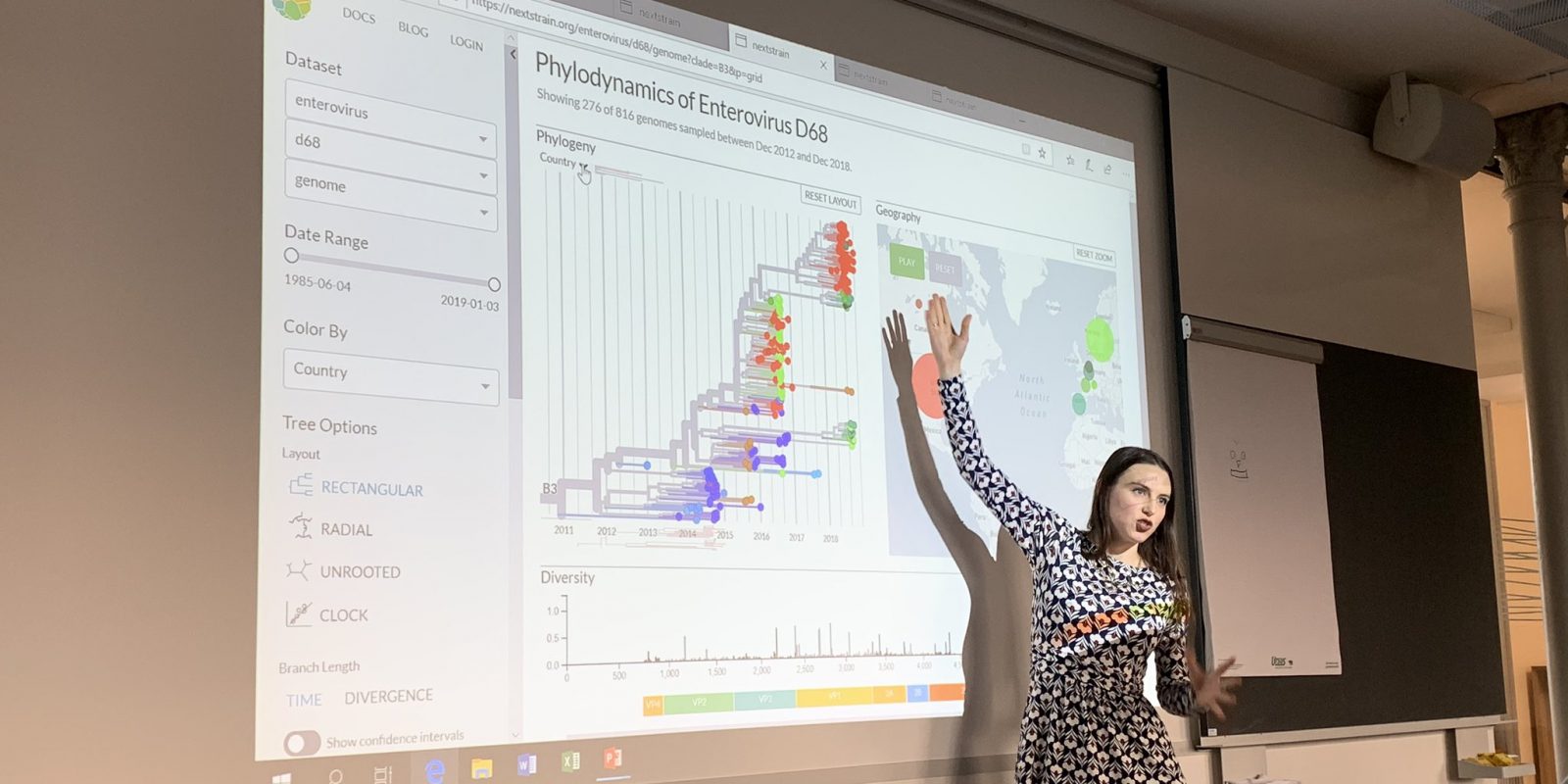
The scientist says that rapid scientific collaboration on the new virus could be key to preventing a public health disaster. Courtesy of Emma Hodcroft
Mapping the Coronavirus
Emma Hodcroft says warmer weather may slow the virus, but that doesn’t mean it’s contained.
A TCU alumna is part of the global effort to stop the coronavirus in its tracks.
Emma Hodcroft ’08, a postdoctoral researcher at the University of Basel in Switzerland, is studying the impacts of weather on the spread of the virus.
A change in season should slow the spread of the virus and lower the number of cases, Hodcroft and a team of scientists hypothesized.
Hodcroft said the team doesn’t fully understand why some pathogens spread less in the summertime, but it could likely be due to a combination of higher temperatures, humidity and people spending less time indoors.
She said a dip in new cases over the summer might lead people to think the coronavirus has been contained, but that complacency might be deceptive. “We could then see another peak — possibly even a larger peak — in the winter of 2020,” she said. “If we are aware of this, we can use the summer to ensure that we have enough tests, equipment and hospital resources on hand to be prepared for any second peak.”
The novel coronavirus was first detected in late December, so Hodcroft looks to data from other seasonal viruses to predict how the coronavirus might respond to a season change.
Hodcroft, whose doctoral studies focus on HIV, encouraged people to take the usual precautions: stay home when sick, wash hands, cover sneezes and coughs and get a flu shot, which prevents hospitals from being overloaded with both flu and coronavirus cases.
Sharing new data is important to Hodcroft’s team, who made their findings public on the science website Nextstrain. “We are big proponents of open science, open code and open data,” she said. “We believe that it leads to better science. In the case of the current outbreak, the response from scientists all over the world has been fantastic. Data and sequences have been shared at lightning speed.”
On the website, researchers can track the history of the coronavirus in multiple ways, including by country.
Hodcroft said her team tries to get new data points, including genetic maps, online within an hour. “We’re making use of all these technologies like never before — fast and cheap sequencing, open data sharing.”
Understanding the genetic makeup of the virus is crucial to designing and evaluating diagnostic tests, tracing outbreaks and identifying intervention options like vaccines.
“As sequencing has gotten cheaper and more common, we’ve been able to extend our methods to new viruses,” she said, “allowing us to uncover really interesting and useful things about them.”

Your comments are welcome
1 Comment
Very interesting and encouraging to see Dr Hodcroft’s comments about the rapid world-wide sharing of data about the Coronavirus. This is the scientific community working the way it should – and mostly does.
Related reading:
Research + Discovery
Learning to Avoid Risky Behavior
Probationers use an app developed at the Institute of Behavioral Research to model better decision-making.
Alumni, Features
Making a Difference Through Medical Nonprofits
Four alumni physicians have a heart for healing and work to make the world a better place — one patient at a time.
Alumni, Features, Web Extras
On the Front Lines
International disease detective Rebecca Coulborn tracks the Ebola outbreak in West Africa.